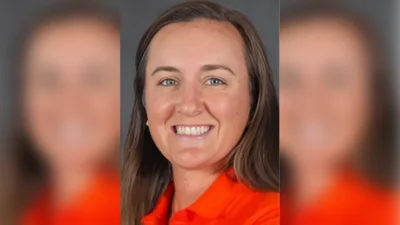Ohio state Reps. Phil Plummer (R-Dayton) and Haraz Ghanbari (R-Perry) have introduced a bill to crack down on fraudulent goods offered for sale online. | Pixabay/StockSnap
Ohio state Reps. Phil Plummer (R-Dayton) and Haraz Ghanbari (R-Perry) have introduced a bill to crack down on fraudulent goods offered for sale online. | Pixabay/StockSnap
Ohio is one of three states pushing laws designed to protect online shoppers from counterfeit goods. But the same law could also protect Ohio consumers from sophisticated crime rings that, according to recent reports, have peddled at least $45 billion in stolen goods.
Buy Safe America reports that lawmakers in Ohio are joined by Pennsylvania and Delaware authorities in considering online marketplace regulations aimed at protecting consumers from purchasing counterfeit or stolen items.
A recent Wall Street Journal investigation detailed the scheme, which includes brick-and-mortar stores such as CVS, Walgreens, Home Depot, Walmart and others targeted by rings that steal merchandise then sell it to resellers using online platforms such as Amazon.
As the crime rings pocket millions in profits, the Wall Street Journal claims that Amazon has been slow or perhaps unwilling to investigate its own platform for potential misuse.
Ohio state Reps. Phil Plummer (R-Dayton) and Haraz Ghanbari (R-Perry) insist they’ve had enough, proposing House Bill 272, which requires verification from sellers on online platforms and marketplaces as a step toward eradicating corruption.
Besides providing law enforcement more resources to investigate marketplaces where questionable things may be occurring, Ghanbari said HB 272 may also make would-be perpetrators think twice before engaging in criminal activity.
“If you are fraudulent, you are not going to want to provide that information or maybe you are going to set up an account or cancel an account,” he told 10TV WBNS. “This will allow law enforcement officers to observe some of those red flags or criminal indicators.”
The bill also has the support of the Ohio Manufacturers’ Association Public Policy Services Director Rachel Carl, who said, “As the prevalence of fake and stolen merchandise sales rises it is important that online retailers have a basic knowledge of third-party sellers. Requiring validation of these sellers on the front end will allow Ohio manufacturers to protect their brand and safeguard their intellectual property.”
On the national stage, Sens. Dick Durbin (D-IL), Bill Cassidy (R-LA), Mazie Hirono (D-HI), Chuck Grassley (R-IA), Chris Coons (D-DE) and Thom Tillis (R-NC) recently joined to introduce the INFORM Consumers Act, which seeks to require third-party marketplaces, such as Amazon and eBay, to verify basic business information from high-frequency sellers who use the platform for transactions.
The Alliance for Consumers supports protection for online consumers. O.H. Skinner, executive director of Alliance For Consumers, said this is a national issue.
“I understand the INFORM Consumers Acts across the country to be focused generally on the problem of counterfeit, ‘fake,’ or otherwise mislabeled goods on major online sales platforms like Amazon," Skinner told Keystone Today. "Online consumer fraud is perhaps the most pervasive consumer protection problem now. Online consumer-focused schemes are a huge problem for consumers and consumer advocates. And online bait-and-switch routines are very dangerous, and can lead to substantial consumer harm.”
The Retail Industry Leaders Association (RILA) has also thrown its support behind the measure.
“Online shopping has been a lifeline for many families throughout the last year, but its surge has also exposed the frequency of counterfeit and stolen goods sold online,” RILA Senior Executive Vice President for Public Affairs Michael Hanson said on the organization's website. “Online marketplaces make it easy for small and medium sized businesses to connect with customers all over the world, but they have also become a hotbed for unscrupulous actors both at home and abroad to peddle fake, dangerous and stolen products that would never be allowed on a store shelf or retail website.”






 Alerts Sign-up
Alerts Sign-up